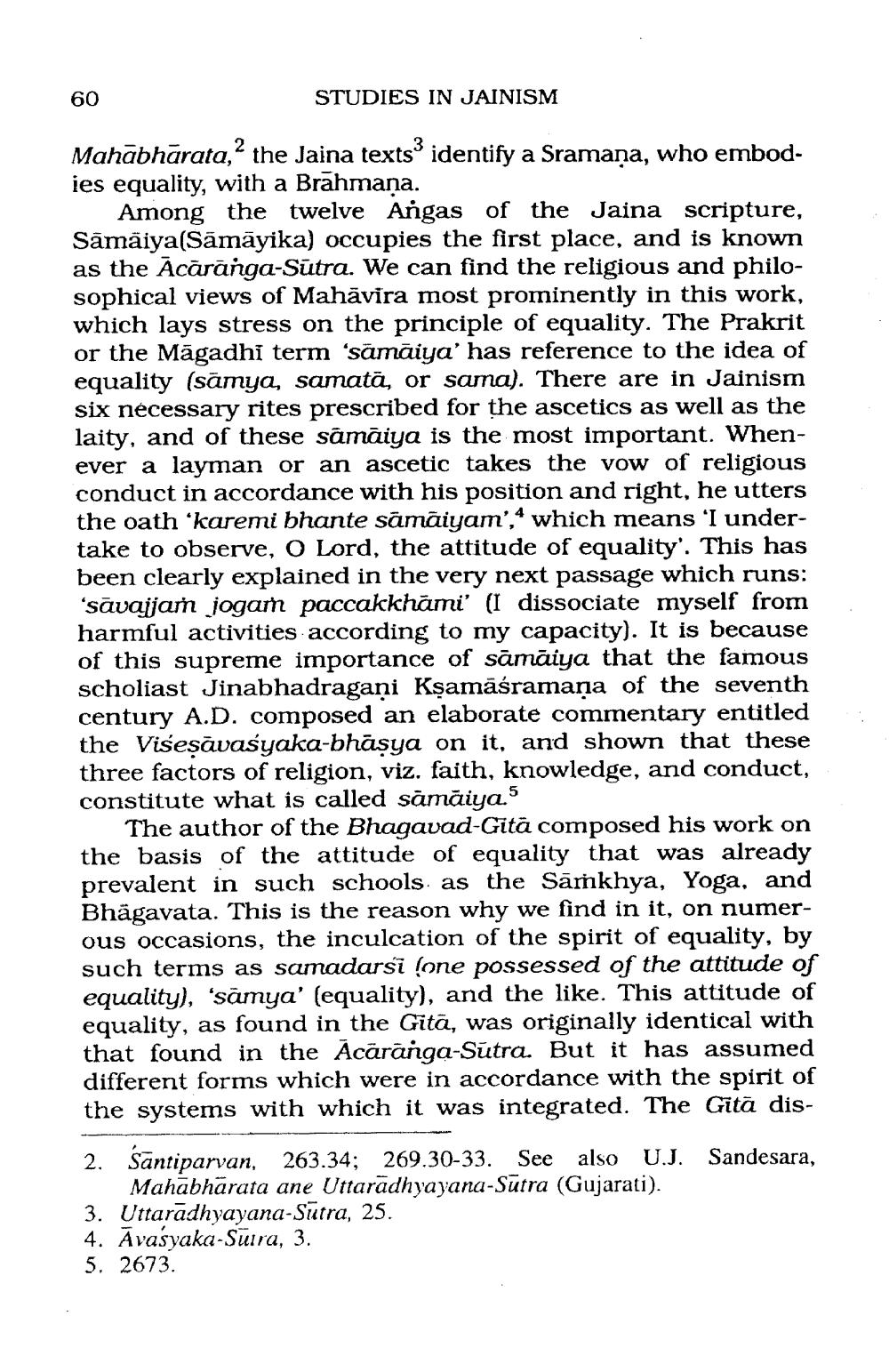________________
60
STUDIES IN JAINISM
Mahābhārata,” the Jaina texts" identify a Sramana, who embodies equality, with a Brahmana.
Among the twelve Angas of the Jaina scripture, Sāmäiya(Sāmāyika) occupies the first place, and is known as the Ācāranga-Sūtra. We can find the religious and philosophical views of Mahävira most prominently in this work, which lays stress on the principle of equality. The Prakrit or the Māgadhi term 'sāmāiya' has reference to the idea of equality (sāmya, samatā, or sama). There are in Jainism six nécessary rites prescribed for the ascetics as well as the laity, and of these sämäiya is the most important. Whenever a layman or an ascetic takes the vow of religious conduct in accordance with his position and right, he utters the oath 'karemi bhante samaiyam', which means 'I undertake to observe, O Lord, the attitude of equality'. This has been clearly explained in the very next passage which runs: 'sāvajjan jogamn paccakkhami' (I dissociate myself from harmful activities according to my capacity). It is because of this supreme importance of sāmaiya that the famous scholiast Jinabhadragani Kşamäśramaņa of the seventh century A.D. composed an elaborate commentary entitled the Viseşāvasyaka-bhasya on it, and shown that these three factors of religion, viz. faith, knowledge, and conduct, constitute what is called sāmāiya."
The author of the Bhagavad-Gitä сomposed his work on the basis of the attitude of equality that was already prevalent in such schools. as the Sāṁkhya, Yoga, and Bhagavata. This is the reason why we find in it, on numerous occasions, the inculcation of the spirit of equality, by such terms as samadarsi (one possessed of the attitude of equality), 'samya' (equality), and the like. This attitude of equality, as found in the Gitā, was originally identical with that found in the Acaranga-Sūtra. But it has assumed different forms which were in accordance with the spirit of the systems with which it was integrated. The Gitā dis
2. Santiparvan, 263.34; 269.30-33. See also U.J. Sandesara,
Mahābhārata ane Uttarādhyayana-Sūtra (Gujarati). 3. Uttaradhyayana-Sūtra, 25. 4. Āvasyaka-Suira, 3. 5. 2673.




